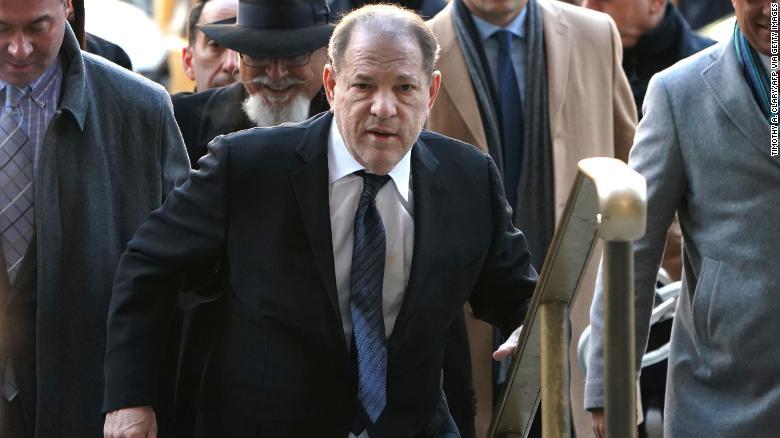- Tommy. CBS. Thursday, February 6, 10 p.m.
- Katy Keene. The CW. Thursday, February 6, 8 p.m.
- Indebted. NBC. Thursday, February 6, 9:30 p.m.
These days, Paul Attanasio is mainly known for writing extraordinarily literate movies and TV series like Quiz Show and Homicide: Life in the Streets. (Well, he does the self-descriptive Bull, too. For the sake of my paragraph construction, let’s ignore that one.)
But back in the day, when he was lead film critic for the Washington Post, Attanasio’s reputation was based more on his extraordinary ability to smooch the derriere of the industry he was covering. In 1986, a Washington literary group that called itself the Osric Dining Society—after Osric, the simpering courtier of Hamlet, labeled variously over the years by critics as “a vain and idle babbler” and “an airy, affected insect”—even gave Attanasio one of its awards honoring “flattery, deference and self-serving vacuity” for a profile he wrote of Meryl Streep. (“You feel that Meryl Streep, simply with her presence, is telling you the truth, not just about her life, but about your own.”) Told of his award, Attanasio asked if it came with a cash prize.
Certainly Attanasio isn’t going to get any prizes for butt-kissing for his newest series, CBS’ Tommy, a funny, horrifying, and generally thrilling account of a female Los Angeles police chief’s rocky relations with the city’s scummy, thieving (and, of course, male) power brokers. But Tommy may inspire an overdose of flowery flattery, not so much for Attanasio’s scripts—though they’re fine pieces of work—but for the show’s star, Edie Falco, making a welcome return to television as the harried, harassed and heroic Chief Abigail Thomas.
No television actress of the past two decades has been more important than Falco. As the morally troubled but hopelessly compromised mob wife of HBO’s The Sopranos and the dedicated nurse throwing her career, marriage and, eventually, life away for drugs on Showtime’s Nurse Jackie, Falco has created two of the most complicated, contradictory characters in television history.
It’s much too soon to know whether Chief Thomas—known to both friends and her plentiful foes as Tommy—will turn out to be as fatally flawed as Carmella Soprano or Nurse Jackie Payton. But she’s fascinatingly complex. A second-generation New York cop, Tommy’s career imploded when she broke the jaw of a Weinsteinian superior officer. She got the Los Angeles job in a hurried attempt to clean up the LAPD image after a massive sex scandal involving hookers, underage girls and a bunch of boss-underling affairs of dubious consensuality.
But the sexual profligacy in the police department was actually a mild problem compared to the entrenched political and financial corruption at city hall. And the pols there see Tommy’s ignorance of and indifference to the treacherous local political currents as a potential threat. Their moles infest the police department, where the old guard still dreams of a counterrevolution. It’s soon apparent that the new chief’s principal adversaries will not be criminals in the street but the ones in her own building.
Tommy has the toughness you’d expect from somebody who worked her way up from walking a beat in the Bronx. But she also has personal vulnerabilities: divorced, estranged from her adult daughter, and of questionable gender orientation—literally, in the view of the bosses at city hall; “Did you ask her about her sexuality?” one demands of the mayor. She’s old enough to be baffled by some of the tech toys popular with her younger officers and horrified by others—particularly some AI profiling software that, her intelligence officers boast, will soon enable them to arrest criminals who haven’t acted yet. And hence aren’t criminals. Whatever credibility she might have with her officers from her years on the street is erased by the fact that the street was in New York and not Los Angeles; she’s an outsider who’s still complaining that you can’t find good bagels or pizza in California. Yet she knows she has to shrug it all off.
Tommy‘s scripts are imaginative, using ripped-from-the-headlines stuff like #MeToo and immigration in unexpected ways. And the supporting cast—including Vladimir Caamaño (Superstore) as the chief’s amusingly wise-ass driver, Australian TV actress Adelaide Clemens as her unnervingly ambitious press spokeswoman, and veteran character actor David St. Louis as her cuckolded ex-husband (he produces a streaming cop drama about a zombie detective whose signature line is “You have the right to remain…dead!”)—is uniformly excellent.
But the straw stirring this flavorful drink is Falco, whose magnetism demands unflinching attention. Whether she’s dressing down a rogue cop who busted up an ICE raid, delicately tiptoeing a political high-wire in a tense conversation with the mayor, or even just eying her waistline with annoyance (preferred diet dinner: a plate of mashed potatoes and a bottle of sauvignon blanc), she radiates an obdurate refusal to surrender to anybody else’s agenda. Tommy may not share much with Carmella or Jackie, but all three of them could take life’s punches and throw them back. Bones will be broken in the process, and Falco’s not afraid of risking her own.
Elsewhere in sight as broadcast TV rolls out its winter season is Katy Keene, The CW’s latest addition from the Archie comic-book universe. Though a cousin of the network’s Riverdale (they share an executive producer, Roberto Aguirre-Sacasa), Katy Keene couldn’t be more different in tone. It’s no tour of the grim underbelly of suburbia, but an exuberantly roller-coaster if-you-can-make-it-there tale of young women taking on New York, sort of a Sex And The City prequel, minus the digressions into anal sex. (Although when the Katy Keene character started popping up in Archie comics in the 1940s, she was drawn to look like Bettie Page, so who knows what might happen in season five?)
Lucy Hale (Pretty Little Liars) plays cute-as-a-button Katy, who wants to be a fashion designer but pays the bills as a department-store personal shopper. Ashleigh Murray (Riverdale) plays cute-as-a-button Josie—yes, of the now-washed-up Josie & The Pussycats—who’s trying to make it in the music biz. Julia Chan (Saving Hope) plays cute-as-a-button Pepper Smith, a would-be It Girl who pops up in all the blogs despite lacking any discernible talent except a posh accent and, of course, being cute-as-a-button. And Jonny Beauchamp (Penny Dreadful) plays cute-as-a-gender-fluid button Jorge, whose dreams of Broadway have just been smashed by a director who didn’t think he could play butch. (“Apparently I’m too gay for Broadway!” Jorge anguishes. “Who even knew that was possible?”)
Katy Keene lasciviously rolls around in every threadbare cliché of showbiz melodrama and then some. For instance, here’s Josie’s first day in New York: She’s turned down for about 10,001 waitressing/barista/being-cute-as-a-button jobs, then gets discovered by a wildly rich and famous record producer while singing for a crowd of randos in Washington Square Park, cuts a fabulous demo, only to have it savagely rejected by a nasty corporate cabal led by the producer’s evil twin sister, and storms out swearing to quit the music business forever!
The song she’s singing while being discovered, by the way, is “Spanish Harlem,” a big hit in 1960 that’s played on Pandora and Spotify slightly less often than Gregorian chants. That’s just one of the weirdly anachronistic pop-culture references in a show about kids who, if they saw the Twin Towers going down on TV on Sept. 11, did so in diapers. Do Gen Z adults really say they want to be the next Diana Ross? And do music producers really interview potential artists by asking, “Shirelles or Ronettes?”
Peculiar tinge of American Bandstand-ism aside, there’s nothing really wrong with Katy Keene as long as you’re, say, 22, and don’t know all those clichés are not only clichés but have been for the past 90 years or so. The cast is affable (and, did I mention, cute as a button?) and melodrama, whatever you may say about it, has been entertaining people since the days when Osric was a character and not a literary society.
For a show that really ought to be horsewhipped, have a look at NBC’s alleged sitcom Indebted, which stars the animated corpses of Fran Drescher and Steven Weber as broke Baby Boomers who have to move back in with their son and his wife (Adam Pally, The Mindy Project, and Abby Elliott, Saturday Night Live). My only question after watching the pilot was, are they joking? And the answer was, no, not even once.

from Latest – Reason.com https://ift.tt/31dHHMT
via IFTTT




